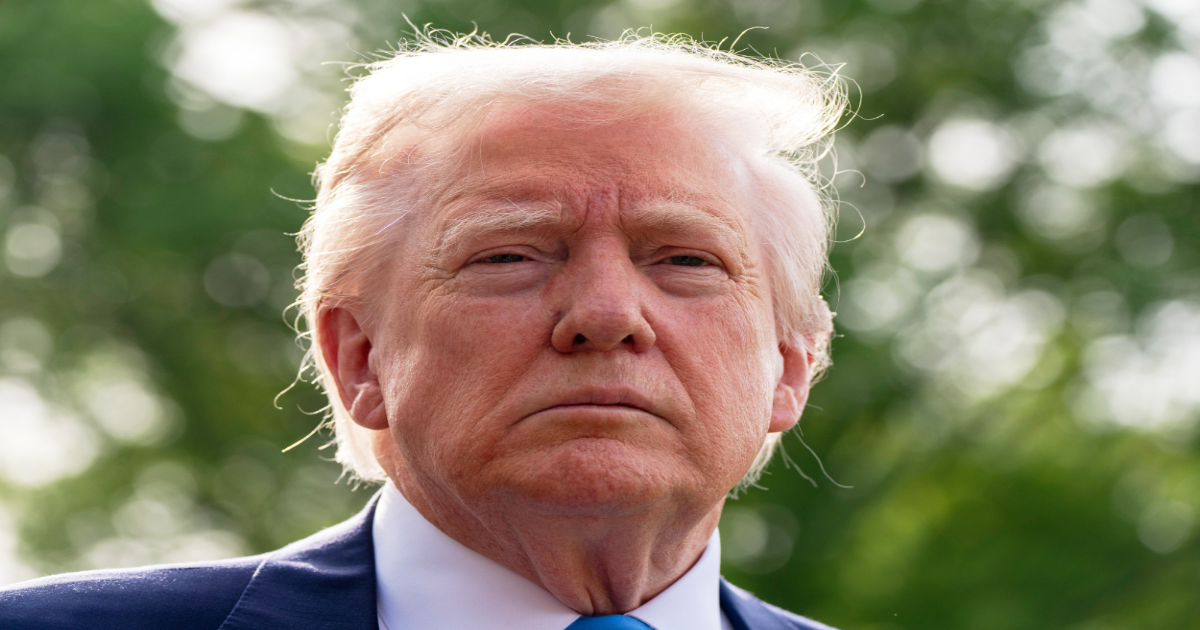President Donald Trump‘s approval rating has declined to a new low as he prepares to mark his first 100 days in office.
According to a Washington Post-ABC News-Ipsos poll, the president’s approval rating has declined among Americans in general, as well as in key demographics including independents and white voters.
Why It Matters
The end of the first 100 days of a presidency provides an opportunity to reflect on what the public thinks of Trump and how well his policies have been received.
Trump’s approval rating is a key indicator of changing public opinion. A sustained backlash to his early actions as president—which included implementing tariffs and imposing a range of executive orders—could persuade him to change course or risk losing political clout.

President Donald Trump at the White House on April 25, 2025, in Washington D.C. President Donald Trump at the White House on April 25, 2025, in Washington D.C. AP Photo/Alex Brandon
What To Know
According to the new poll, 39 percent of adult Americans approve of Trump’s handling of the presidency while 55 percent disapprove. In February, 45 percent approved of the president while 53 percent held negative views.
This shows the proportion of people who approve of Trump has declined by 6 percent, and the proportion who disapprove of him has increased by 2 percent.
Meanwhile, 42 percent of registered voters said they approved of Trump compared to the 48 percent who said they approved of him in February. In this period, the proportion of registered voters who disapprove of the president has swung from 51 percent to 55 percent.
The poll of 2,464 U.S. adults was conducted between April 18-22. It has a margin of error of +/- two percentage points.
It reveals that Trump’s approval rating is lower than any other past president at the 100-day mark in their first or second term.
Among white people without a college degree, Trump has seen a decline of 10 points. He is also down 13 points among adults under age 30 and 11 points among those who say they did not vote in November.
Some 33 percent of independents, a pivotal group who helped Trump secure the keys to the White House, said they approved of him, while 58 percent disapproved. Among independents who lean Republican, his approval has dropped from 76 percent to 63 percent since February.
It comes as the president has been hit with sustained negative polling. According to an April CNBC poll of 1,000 Americans, 43 percent approved of Trump’s handling of the economy and 55 percent disapproved—marking the first time a CNBC survey has shown the president with a net negative on the economy.
However, the poll found that Americans still trust Trump over congressional Democrats by 37 percent to 30 percent and that he is still commanding support from his Republican base.
What People Are Saying
President Donald Trump previously said a poll had shown he had the “best poll numbers, ever” in a post on Truth Social. “TRUMP’S BEST POLL NUMBERS, EVER. THANK YOU!” he wrote, though did not reveal the poll he was referring to.
Thomas Gift, an associate professor of political science and director of the Centre on U.S. Politics at University College London, previously told Newsweek: “Trump hasn’t earned himself many supporters with his handling of the tariff situation. It’s not only the policy that seems to irk voters, but also the apparent lack of strategy, the impulsive decision-making, and the inconsistent messaging from the White House.”
Heath Brown, an associate professor of public policy at City University of New York, previously told Newsweek: “The president’s signature policy in his first 100 days—introduction of large new tariffs—is unpopular with many Americans, including nearly half of Republicans who think it will harm the U.S. economy in the near term. It then is not surprising that the president’s popularity has dipped to the low levels shown in recent polls.”
What Happens Next
Public opinion regarding politics and political figures is likely to continue to fluctuate. Any sustained negative polling could affect the Republicans in the midterm elections in November 2026.
